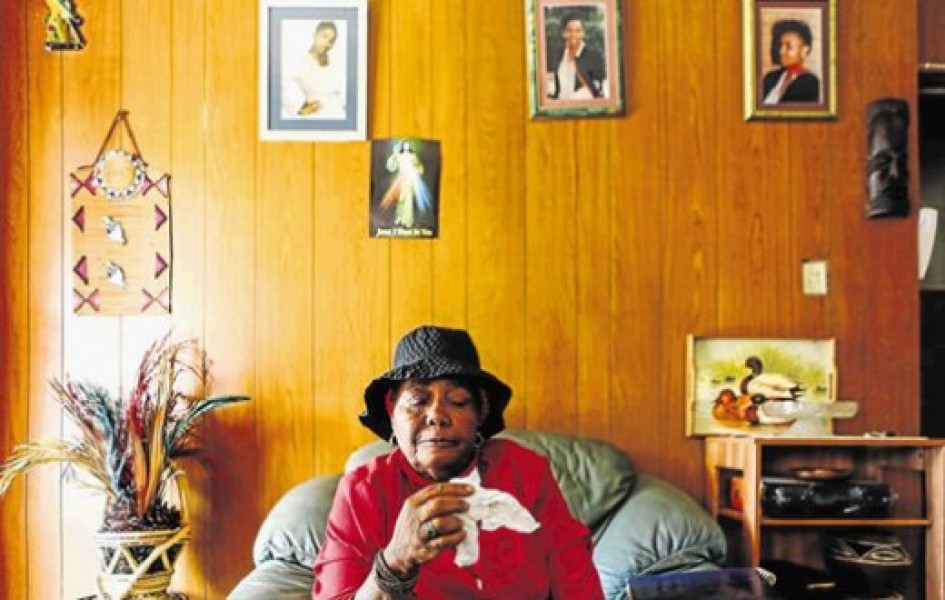Ernestina Simelane, Nokuthula's mother, wants to bury her daughter 'with the dignity she deserves'. (MOELETSI MABE)
After 33 years in the relentless pursuit of truth and accountability the family of anti-apartheid activist Nokuthula Simelane will finally see justice done. On 8 February 2016, the National Prosecuting Authority (NPA) announced that it will charge four former apartheid security policemen with her murder and kidnapping.
Although the South African Truth and Reconciliation Commission (TRC) recommended that more than 300 cases should be prosecuted, this is the first prosecution of apartheid-era perpetrators since the 2007 plea bargain agreement was struck with former police minister, Adriaan Vlok and four senior police officers.
Nokuthula Simelane was abducted, tortured and forcibly disappeared by members of the Security Branch of the former South African Police in 1983. She was a 23 year old university graduate and acted as a courier for Umkhonto we Sizwe, the armed wing of the African National Congress, moving between Swaziland and South Africa. Her remains have never been found. The family has been denied the right to bury their daughter with the dignity she deserves.
In 1996, a police docket was opened and in 2001 the Amnesty Committee of the Truth and Reconciliation Commission (TRC) granted some of the perpetrators amnesty for Nokuthula’s abduction, including certain police officers who the Committee found had lied about her brutal torture. None of the perpetrators applied for amnesty for her murder. Simelane family’s pleas for an inquest were denied and requests to institute criminal proceedings against the suspects who did not apply for amnesty were refused.
In 1996, a police docket was opened and in 2001 the Amnesty Committee of the Truth and Reconciliation Commission (TRC) granted some of the perpetrators amnesty for Nokuthula’s abduction, including certain police officers who the Committee found had lied about her brutal torture. None of the perpetrators applied for amnesty for her murder. Simelane family’s pleas for an inquest were denied and requests to institute criminal proceedings against the suspects who did not apply for amnesty were refused.
In the last ditch attempt, Thembi Nkadimeng, sister of Nokuthula filed an application before the the High Court seeking to compel the National Director of Public Prosecutions (NDPP) to make a decision in respect of Nokuthula’s disappearance. The application, which included supporting affidavits from former NDPP, Vusi Pikoli and a senior prosecutor, disclosed how the Simelane case, as well the other cases recommended by the TRC, were suppressed as a result of direct political interference.
ICTJ’s Howard Varney has been working on this application and representing Simelane’s family from the beginning. In the conversation with ICTJ’s Communication Director, Refik Hodzic, Varney describes the details of this fascinating struggle for justice and the implications of the High Court’s decision.
